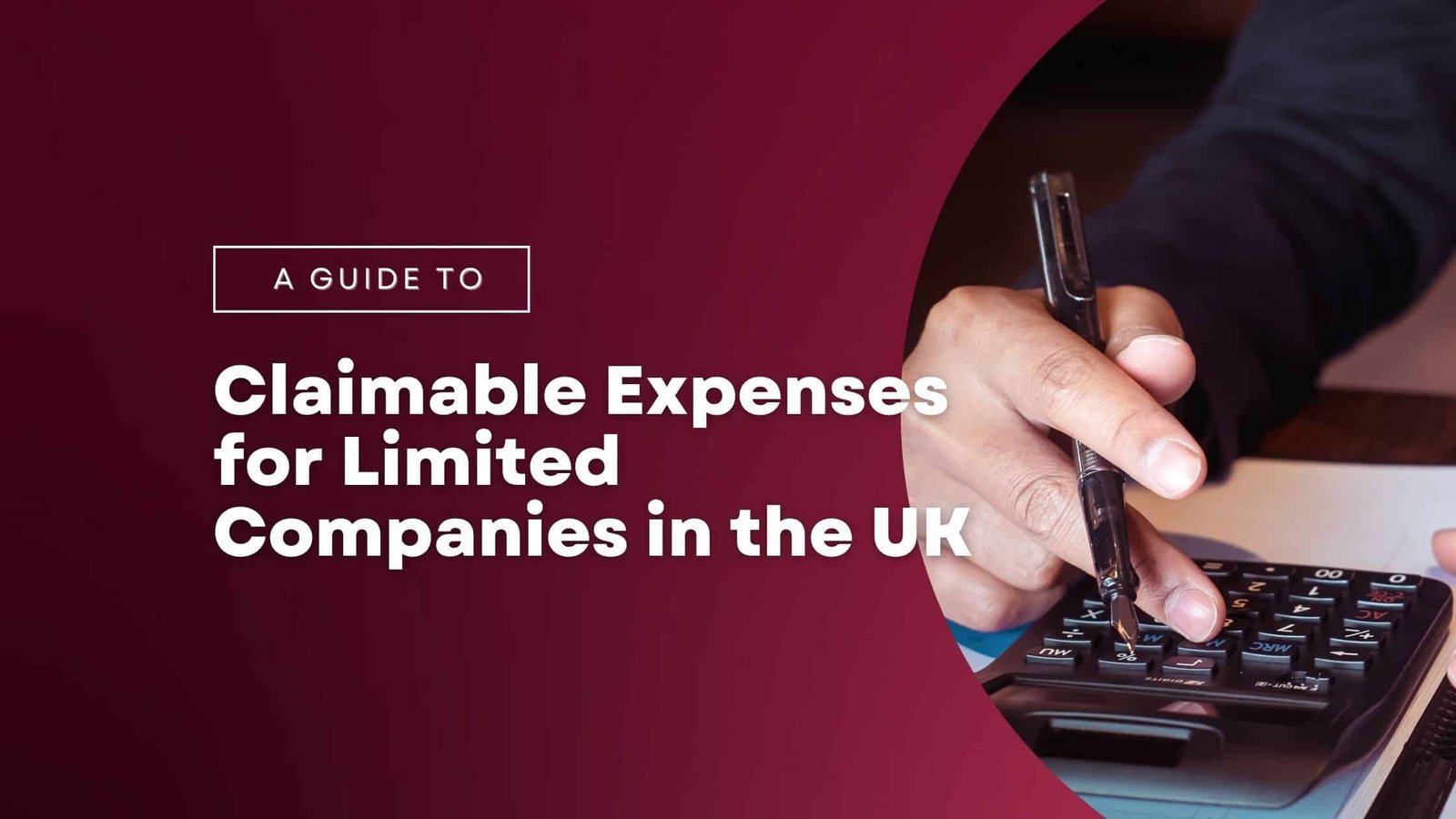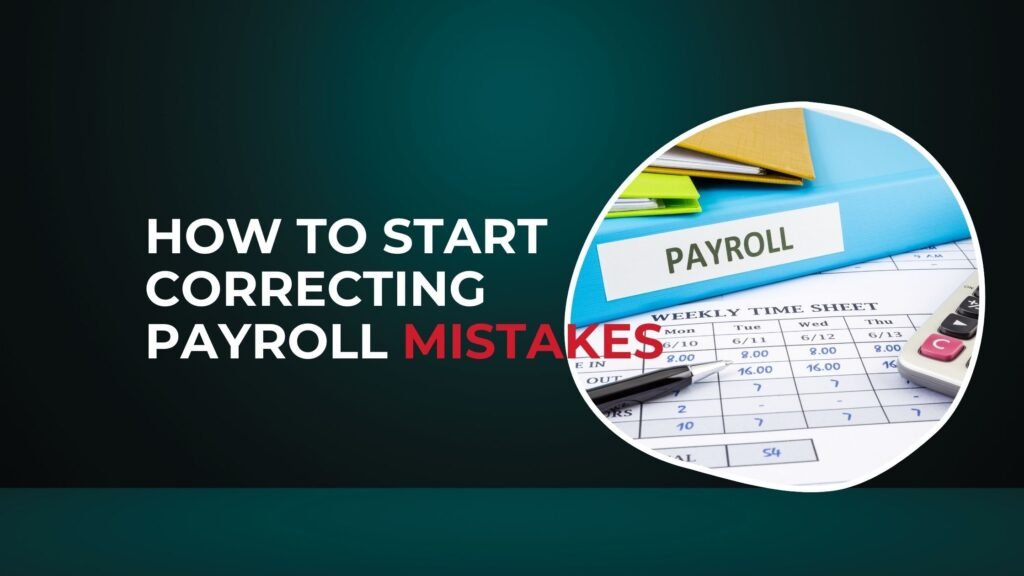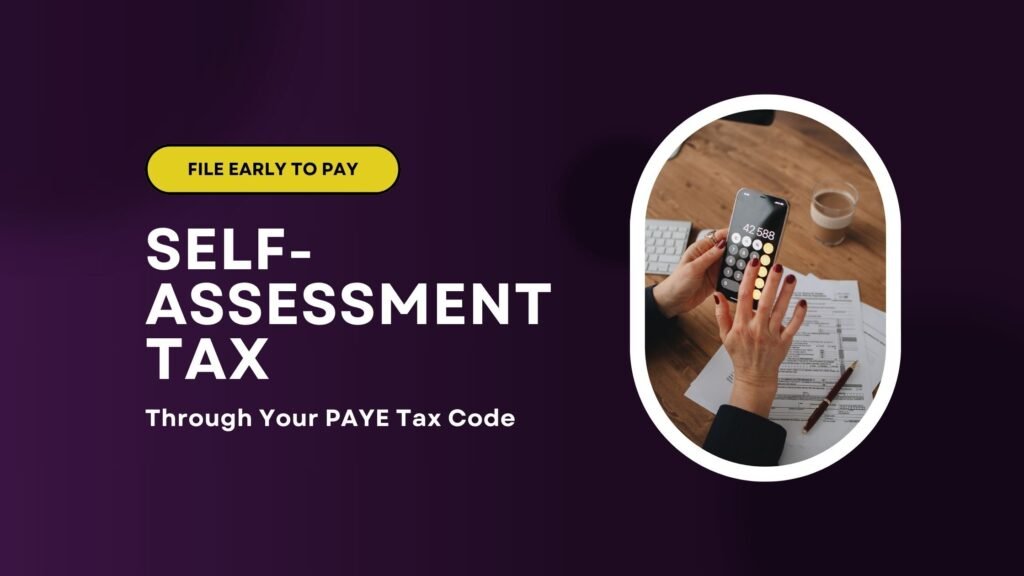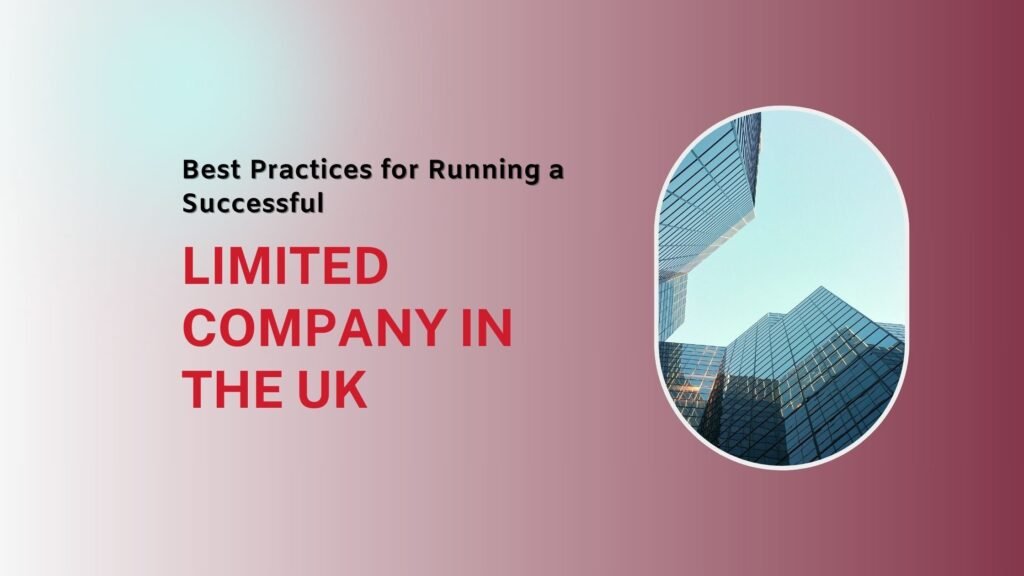Running a limited company comes with different costs, but many of these costs can help reduce your tax bill. Claiming the right expenses ensures your company remains tax-efficient and compliant with HMRC rules. In this article, we’ll explain Claimable Expenses for Limited Companies in the UK to help you understand what you can and cannot claim.
What Are Claimable Expenses for Limited Companies in the UK?
Claimable expenses are costs that are fully for business purposes. These costs reduce your company’s profits before tax is calculated, lowering your Corporation Tax liability. It’s important to know the difference between business expenses and personal expenses. Business expenses are things like office supplies, travel, and staff wages. Personal expenses, such as leisure trips or buying personal clothes, cannot be claimed. Mixing these two can cause problems with HMRC, so it’s important to keep clear records.
Key Expenses Limited Companies Can Claim
Managing finances effectively is crucial for startups in London, where high competition and operational costs demand careful planning and strategy. Below are some essential tips to help your business stay on track financially:
Efficient management of business expenses helps reduce tax liabilities and ensures tax compliance. Here are some key claimable expenses:
1. Office Expenses:
Office expenses are costs that help run your business space. This includes stationery, printer ink, and postage. It also covers office equipment like laptops, desks, and chairs. Phone and broadband bills can also be claimed, but only if they are used for business purposes. Personal use must not be included.
2. Travel Costs:
Travel expenses cover trips made for business purposes. This includes mileage if you use your personal car for work, train fares, taxi rides, and even flights. You can also claim hotel costs if you need to stay overnight for work and meals bought during these trips. However, you cannot claim for commuting between your home and regular workplace.
3. Clothing and Uniforms:
Clothing expenses can only be claimed if they are specifically for work. Protective clothing, such as steel-toe boots or helmets, can be claimed. Uniforms with your company logo are also included. Everyday clothes, even if worn for work, are not claimable.
4. Staff Costs:
Staff costs include salaries for employees and directors, as well as National Insurance Contributions (NICs). Pension contributions made by the company are also tax-deductible. Training courses to improve skills relevant to the business can be claimed. Staff entertainment, like annual parties costing up to £150 per person, is also allowed.
Limited Company
Accountancy Services
5. Marketing and Advertising:
Marketing and advertising costs include fees for online campaigns, social media ads, and traditional ads like print or radio. Payments to PR agencies to promote your business can also be claimed. These costs must be for business purposes only.
6. Vehicle Expenses:
Vehicle expenses include fuel, insurance, repairs, and servicing for cars or vans used for business. Costs like parking fees, road tolls, and congestion charges are also allowed. You cannot claim for personal travel. Keeping clear mileage logs and receipts is essential for these claims.
7. Insurance:
Insurance costs that protect your business are fully claimable. This includes public liability insurance, professional indemnity insurance, and employer liability insurance. Personal insurance costs are not included.
8. Rent and Utilities:
If your company rents office space, the rent cost is claimable. Utility bills like water, gas, and electricity for the office can also be claimed. If you work from home, you can claim a flat rate of £6 per week or a portion of your household bills based on business usage.
What Expenses Are Not Claimable for Limited Companies?
Here are key expenses that limited companies cannot claim:
- Personal Expenses: Non-business-related clothing, entertainment, or any personal use costs are not allowable.
- Dividends: Salaries paid as dividends to shareholders cannot be claimed as a business expense.
- Fines and Penalties: Costs like parking fines or penalties incurred due to legal infractions are non-deductible.
- Non-Business Travel Costs: Travel expenses unrelated to business activities are excluded.
- Mixed Expenses: Any expense that combines personal and business use, without clear segregation, cannot be claimed.
It’s important to keep personal and business expenses separate to avoid confusion or problems with HMRC.
How to Keep Track of Claimable Expenses
Good record-keeping is key for claiming expenses. Using accounting software can make it easier to track and categorize expenses. Digital tools can also store scanned copies of receipts. For businesses with employees, having a clear expense policy helps ensure everyone follows the same rules. Keeping an expense spreadsheet updated throughout the year can help you stay organised. Always keep receipts for at least six years, as HMRC might ask for them.
Final Thoughts
Claiming business expenses is an important part of managing your company’s finances. It helps reduce your tax bill and keeps your business tax-compliant. Keeping clear and accurate records is key to avoiding any problems with HMRC. If you’re not sure about any expense, it’s always a good idea to ask an accountant for advice. Managing expenses well will keep your company finances healthy and organised.
Need help with managing your business expenses? Book a free consultation with Cartwheel International for expert advice and support tailored to your company’s needs. Let us guide you in staying tax-compliant and financially efficient!





